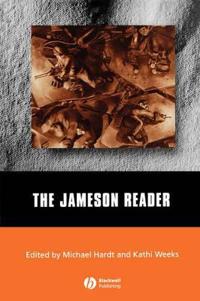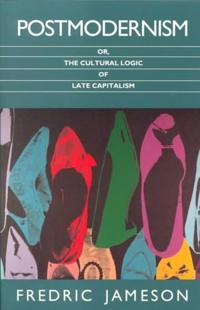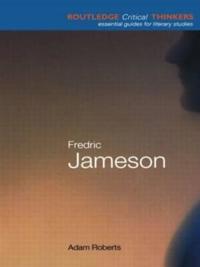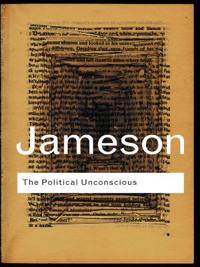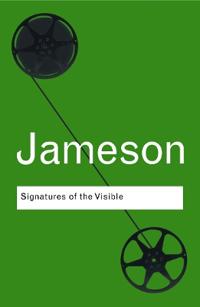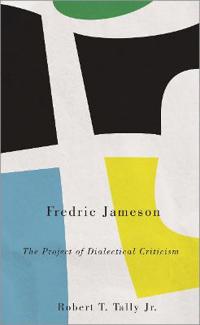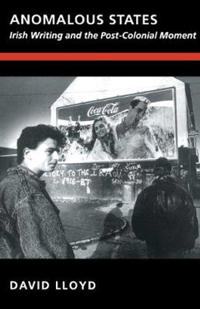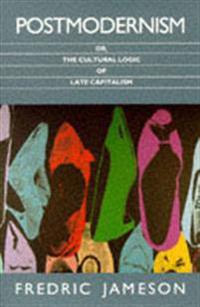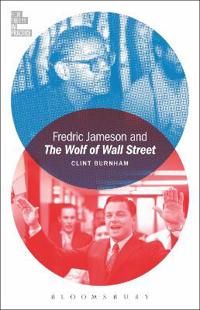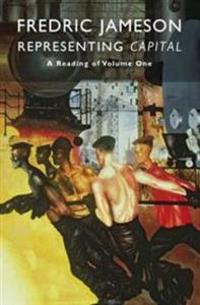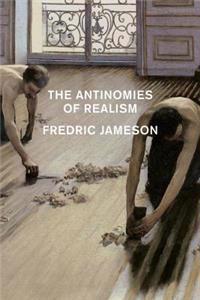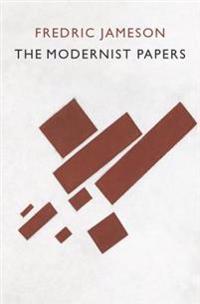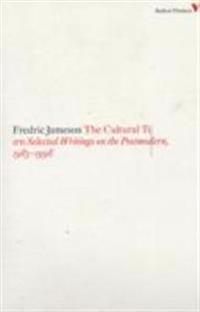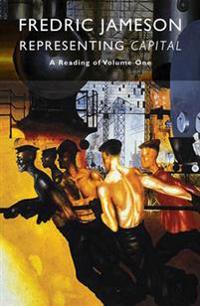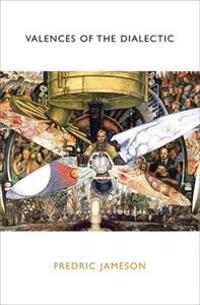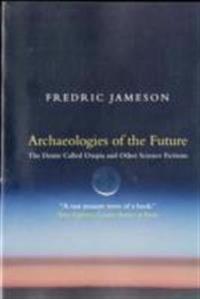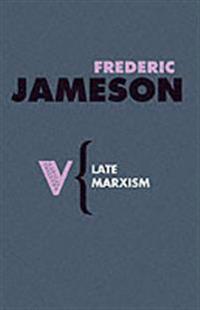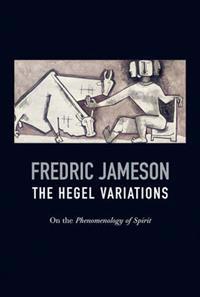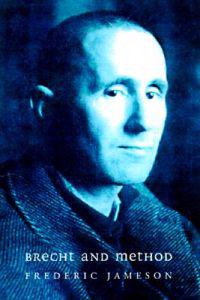The Jameson Reader (Häftad)
avFredric Jameson, Hardt, K. Weeks K.
ISBN: 9780631202707 - UTGIVEN: 200007This book brings together key essays and excerpts from the broad spectrum of Frederic Jamesona s writings, providing an accessible introduction to the intricacies of his thought and uncovering new and exciting aspects of his work.[...]
Postmodernism, Or, the Cultural Logic of Late Capitalism (Häftad)
avFredric Jameson, Fredric Jameson, Jameson
ISBN: 9780822310907 - UTGIVEN: 199011Now in paperback, Fredric Jameson's most wide-ranging work seeks to crystalize a definition of "postmodernism" Jameson's inquiry looks at the postmodern across a wide landscape, from "high"; art to "low," from market ideology to architecture, from painting to "punk" film, from video art to literatur[...]
Jameson on Jameson (Pocket)
avJameson, Fredric
ISBN: 9780822341093 - UTGIVEN: 2008-02-12Fredric Jameson is one of the most influential literary and cultural critics writing today. He is a theoretical innovator whose ideas about the intersections of politics and culture have reshaped the critical landscape across the humanities and social sciences. Bringing together ten interviews condu[...]
Fredric Jameson (Häftad)
avAdam C. Roberts
ISBN: 9780415215237 - UTGIVEN: 200009An invaluable introduction to the life and work of one of today's most important cultural critics. Studied on most undergraduate literary and cultural studies courses, Fredric Jameson's writing targets subjects from architecture to science fiction, cinema to global capitalism. Of his works, The Po[...]
The Political Unconscious (Häftad)
avFredric Jameson
ISBN: 9780415287517 - UTGIVEN: 200206In this ground-breaking and influential study Fredric Jameson explores the complex place and function of literature within culture. At the time Jameson was actually writing the book, in the mid to late seventies, there was a major reaction against deconstruction and poststructuralism. As one of the [...]
Signatures of the Visible (Storpocket)
avFredric Jameson
ISBN: 9780415771610 - UTGIVEN: 200702In such celebrated works as "Postmodernism: The Cultural Logic of Late Capitalism", Fredric Jameson has established himself as one of America's most observant cultural commentators. In "Signatures of the Visible" Jameson turns his attention to cinema - the artform that has replaced the novel as the [...]
Fredric Jameson (Pocket)
avRobert T. Tally
ISBN: 9780745332109 - UTGIVEN: 2014-06Fredric Jameson is the most important Marxist critic in the world today. While consistently operating at the cutting edge of literary and cultural studies, Jameson has remained committed to seemingly old-fashioned philosophical discourses, most notably dialectical criticism and utopian thought. In F[...]
Fredric Jameson (Inbunden)
avRobert T. Tally
ISBN: 9780745332116 - UTGIVEN: 2014-06Fredric Jameson is the most important Marxist critic in the world today. While consistently operating at the cutting edge of literary and cultural studies, Jameson has remained committed to seemingly old-fashioned philosophical discourses, most notably dialectical criticism and utopian thought. In F[...]
Fredric Jameson (Häftad)
avSean Homer
ISBN: 9780745616865 - UTGIVEN: 1998-01This is the first comprehensive analysis of the work of Fredric Jameson, one of the most important cultural critics writing today. Homer provides a clear exposition and appraisal of Jamesona s theories and an assessment of his contribution to contemporary cultural theory.[...]
Anomalous States: Irish Writing and the Post-Colonial Moment (Häftad)
avDavid Lloyd, Stanley Fish, Fredric Jameson
ISBN: 9780822313441 - UTGIVEN: 1993-04Postmodernism (Häftad)
avFredric Jameson
ISBN: 9780860915379 - UTGIVEN: 199201For anybody hoping to understand not just the cultural but the political and social implications of postmodernism, Jameson's book is a fundamental, nonpareil text.[...]
Fredric Jameson and the Wolf of Wall Street
ISBN: 9781501308345 - UTGIVEN: 2016-10The Film Theory in Practice series fills a gaping hole in the world of film theory. By marrying the explanation of a film theory with the interpretation of a film, the volumes provide discrete examples of how film theory can serve as the basis for textual analysis. Fredric Jameson and The Wolf of [...]
A Singular Modernity (Häftad)
avFredric Jameson
ISBN: 9781781680223 - UTGIVEN: 2013-01The concepts of modernity and modernism are amongst the most controversial and vigorously debated in contemporary philosophy and cultural theory. In this new intervention, Fredric Jameson--perhaps the most influential and persuasive theorist of postmodernity--excavates and explores these notions in [...]
Representing Capital (Pocket)
avFredric Jameson
ISBN: 9781781681572 - UTGIVEN: 2014-01"Representing Capital," Fredric Jameson's first book-length engagement with Marx's magnum opus, is a unique work of scholarship that records the progression of Marx's thought as if it were a musical score. The textual landscape that emerges is the setting for paradoxes and contradictions that strugg[...]
The Ancients and the Postmoderns (Inbunden)
avFredric Jameson
ISBN: 9781781685938 - UTGIVEN: 2015-06Fredric Jameson sweeps from the Renaissance to "The Wire" High modernism is now as far from us as antiquity was for the Renaissance. Such is the premise of Fredric Jameson s major new work in which modernist works, this time in painting (Rubens) and music (Wagner and Mahler), are pitted against lat[...]
The Antinomies of Realism (Pocket)
avFredric Jameson
ISBN: 9781781688175 - UTGIVEN: 2015-03"The Antinomies of Realism "is a history ofthe nineteenth-century realist novel and its legacy told without a glimmer of nostalgia for artistic achievements that the movement of history makes it impossible to recreate. The works of Zola, Tolstoy, Perez Galdos, and George Eliot are in the most profou[...]
The Modernist Papers (Inbunden)
avFredric Jameson
ISBN: 9781844670963 - UTGIVEN: 200707Fredric Jameson, one of America's finest cultural critics, offers his dynamic insight into modernist literature and art. A companion to the classic, "A Singular Modernity", this stunning tour de force looks at the innovative literary experiments of Joyce and Proust, the poetry of Wallace Stevens, Wi[...]
The Cultural Turn (Häftad)
avFredric Jameson
ISBN: 9781844673490 - UTGIVEN: 200905Fredric Jameson's constantly enriched reflections have become an essential reference point for all those attempting to grapple with the postmodern. However, until now, several of his key writings on the subject, from initial formulations to current developments, have been unavailable in an accessibl[...]
Representing Capital (Inbunden)
avFredric Jameson
ISBN: 9781844674541 - UTGIVEN: 201106Representing Capital, Fredric Jameson's first book-length engagement with Marx's magnum opus, is a unique work of scholarship that records the progression of Marx's thought as if it were a musical score. The textual landscape that emerges is the setting for paradoxes and contradictions that struggle[...]
Valences of the Dialectic (Häftad)
avFredric Jameson
ISBN: 9781844674633 - UTGIVEN: 201010After half a century exploring dialectical thought, renowned cultural critic Fredric Jameson presents a comprehensive study of a misunderstood yet vital strain in Western philosophy. The dialectic, the concept of the evolution of an idea through conflicts arising from its inherent contradictions, tr[...]
Archaeologies of the Future (Häftad)
avFredric Jameson
ISBN: 9781844675388 - UTGIVEN: 200704This is a brilliant study of utopia and science fiction, from Thomas More to Philip K. Dick, by the master literary critic. "Archaeologies of the Future", Jameson's most substantial work since "Postmodernism", investigates the development of the Utopian form since Thomas More, and interrogates the f[...]
Late Marxism (Häftad)
avFredric Jameson
ISBN: 9781844675753 - UTGIVEN: 200612In the name of an assault on totalization and identity, a number of contemporary theorists have been busily washing Marxism's dialectical and utopian projects down the plug-hole of postmodernism and post-politics. A case in point is recent interpretation of one of the greatest twentieth-century phil[...]
The Hegel Variations (Inbunden)
avFredric Jameson
ISBN: 9781844676163 - UTGIVEN: 201006In this major new study, the philosopher and cultural theorist Fredric Jameson offers a new reading of Hegel's foundational text "The Phenomenology of Spirit". In contrast to those who see The Phenomenology as a closed system ending with Absolute Spirit, Jameson's reading presents an open work in wh[...]
Brecht and Method (Häftad)
avFredric Jameson
ISBN: 9781844676774 - UTGIVEN: 2010-12The legacy of Bertolt Brecht is much contested, whether by those who wish to forget or to vilify his politics, but his stature as the outstanding political playwright and poet of the twentieth century is unforgettably established in this major critical work. Fredric Jameson elegantly dissects the in[...]
Brecht and Method (Inbunden)
avFredric Jameson
ISBN: 9781859848098 - UTGIVEN: 199809An analysis of the connections between Brecht's drama and politics. The author argues that Brecht's method was a multi-layered process of reflection and self-reflection, reference and self-reference, which allows individuals to situate themselves historically, to think about themselves in the third [...]

